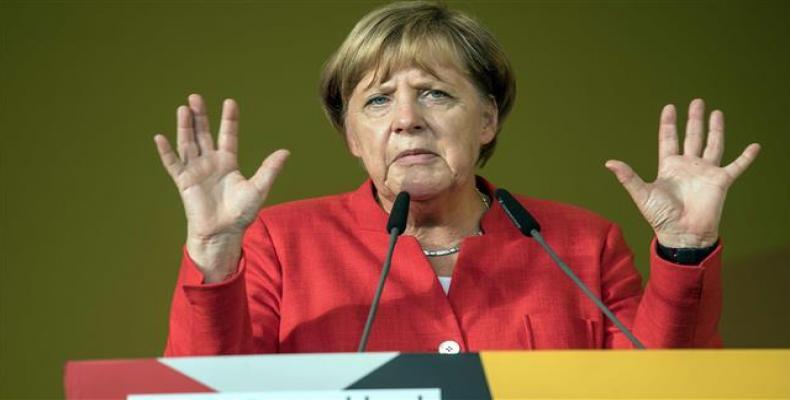The failure of German Chancellor Angela Merkel in forming a new cabinet following last September's elections has led this week to a political crisis that could lead to a solution that has not been seen in Germany in the past seventy years.
I am speaking of advanced elections, an unheard of solution in that central European nation, regarded as one of the most stable countries in Western Europe.
Everything pointed at an easy road for sixty three year old Merkel, who was apparently sailing towards her fourth term, but the scant majority she got at the polls forced her to seek an alliance with the ecologists and conservatives and attempting to convince the social democrats to join a large political coalition.
Her negotiations failed however, and she was forced to report to President Frank-Walter Steinmeier that no new Government would be available.
The Presiden's figure is almost a decoration in Germany, but his few duties include the faculty to dissolve the Bundestag, that is the German Parliament, and convene new elections.
So far, however, the German President has not taken such steps and has urged the continuation of efforts to solve the crisis.
Angela Merkel, however, surprised everyone in declaring that she would rather face the polls again before leading a Government with a Parliamentary minority.
The social democrats, led by Martin Schultz, also seem ready to go for broke in early elections instead of joining a minority government, although just a few hours ago there were signs that they would be ready to hold new negotiations.
The extreme right wing is sharpening its teeth after the surprising twelve percent of the votes obtained in the past elections, their best result in history.
Some experts consider that the relative stagnation of the German economy, the real engine of the European Union, along with an increase in unemployment and an austerity program that has been very damaging to the lowest income sector of the German nation, led many disenchanted voters to seek refuge in the extreme right wing.
An alternative for Germany, the right wing organization, has already begun its attacks on the weakest side of Merkel, who calls for a favorable treatment to immigration, a sector blamed by the ultra-right with taking jobs from German nationals and receiving a large share of public expenditures.
The question now floating in the German political air is if the current German era, keynoted by political pragmatism and ideological flexibility is coming to an end?
The problem in Germany is that its political field does not have a rising figure, like Emmanuel Macron appeared in France.
In fact, Angela Merkel has been regarded as the figure capable of facing the protectionist policy followed by President Donald Trump and even putting under control the erratic policy followed by the current White House towards Europe.
It is a complex situation that is generating concern in Brussels, headquarters of the Western European organizations, which will force the Germans to adopt judicious policies, and avoid the remedy being worst than the disease itself.


